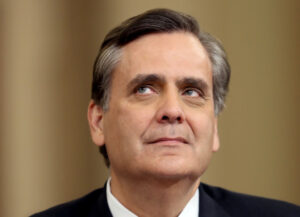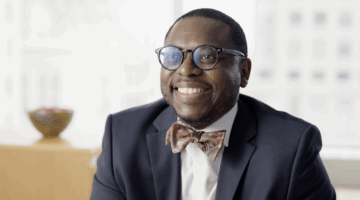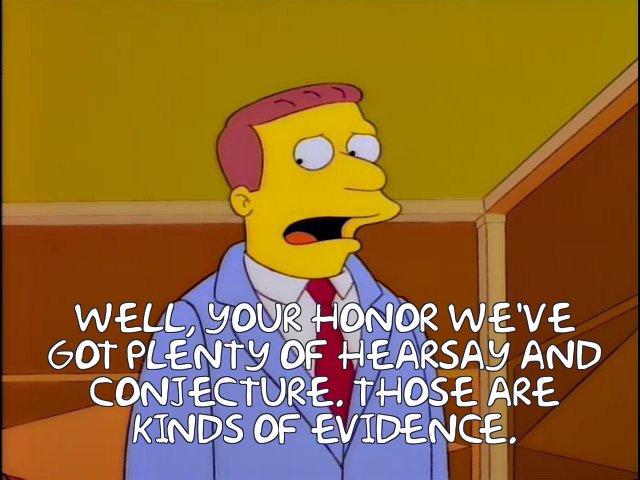
(Photo by Chip Somodevilla/Getty Images)
Shakespeare’s Falstaff said that discretion is the better part of valor. That may have worked for the old knight, but Falstaff never had to worry about staying atop the rolodex of fickle Fox News bookers. So when Jonathan Turley has an opportunity to make a public spectacle opining on subjects he’s neither researched nor even vaguely understands, he cannot demur.
The hustle is real.

How The Law Office Of Stephen L. Thomas Jr. Reclaimed Valuable Hours And Strengthened Client Care With 8am
Founded in 2017, the Baltimore-based Law Office of Stephen L. Thomas Jr. unified case management, communication, and payments with 8am—saving 10–20 hours a week for clients, trials, and growth.
When House Republicans decided to investigate the “Twitter Files,” and needed a witness to testify about Twitter, its policies, and contemporaneous decision making, they called… Jonathan Turley.
*Cough*
As his written testimony noted:
The Twitter Files raise serious questions of whether the United States government is now a partner in what may be the largest censorship system in our history. The involvement cuts across the Executive Branch, with confirmed coordination with agencies ranging from the CDC to the CIA. Even based on our limited knowledge, the size of this censorship system is breathtaking, and we only know of a fraction of its operations through the Twitter Files.

Why Your Practice Is Burning Money And How You Can Do Better
Our expert panel explores common sources of profit leakage along with practical steps for improvement.
“On our limited knowledge” is a key concession.
In fact, he has no knowledge. He’s repeating claims made in the “Twitter Files,” the mostly inconsequential, misleading, and deceptively incomplete social media rants from Elon Musk’s hand-picked journalists who were given access to cherry-picked data. There might well have been shady stuff going on at legacy Twitter, but what the Twitter Files decidedly do not reveal is a “breathtaking” “censorship system.”
In his testimony, Turley uncritically regurgitates these threads and passes it off as “expert analysis.” But it’s not.
An excellent video exploration of the history behind the modern anti-vaxxing movement, coined the phrase “idea laundering” for the situation where someone with credentials takes opinions from unqualified people and then parrots those opinions under the banner of “assuming these are true” and then pawning off that analysis as expertise, obscuring the fact that the underlying claims are still suspect.
Matt Taibbi and Bari Weiss and the rest of the Twitter Files gang put out a slanted narrative of facts predicated on a series of incoherent legal assumptions about the Twitter data they were given. But they aren’t lawyers. So the committee hauls out Turley, who has no compunctions about issuing bad legal takes, to repeat those still wrong claims in an effort to transubstantiate them into “expert” thoughts.
Eventually, Rep. Debbie Wasserman Schultz started to wonder exactly what Turley was doing at the hearing given that he, you know, exposed himself as having no firsthand knowledge of the subject of the hearing.
So she came right out and asked (after a Matt Gaetz clip that comes along for the embedding ride).
"So essentially your responses to the questions here today were your own opinion and pure conjecture" — Wasserman Schultz highlights what an utter clown @JonathanTurley is pic.twitter.com/V9ZhpHWBms
— Aaron Rupar (@atrupar) February 9, 2023
The following was not Turley’s response, but it should have been.
“But I did stay at a Holiday Inn Express last night.” https://t.co/xC58sAGEr6
— Steve Vladeck (@steve_vladeck) February 9, 2023
Instead Turley offered something much more like this from the fictional attorney that best encapsulates Turley’s professional standing these days:

Turley seems to think that being a law professor grants him expertise enough to spin his own hypos. Unfortunately, testifying about the impact of a fact-pattern that is not only admittedly incomplete, but also likely dubious renders the testimony useless at best and dangerous at worst.
Testifying that it would be bad if Saddam had weapons of mass destruction didn’t mean that he did, and testifying that it would be unconstitutional if the FBI, CIA, and the Men In Black run a massive Twitter censorship operation doesn’t mean that they do.
A law professor exercising discretion could really only testify, “I do not have enough information based on this record to even speculate as to whether or not there is a constitutional violation here.”
But we’ve already established that discretion isn’t this guy’s style.
 Joe Patrice is a senior editor at Above the Law and co-host of Thinking Like A Lawyer. Feel free to email any tips, questions, or comments. Follow him on Twitter if you’re interested in law, politics, and a healthy dose of college sports news. Joe also serves as a Managing Director at RPN Executive Search.
Joe Patrice is a senior editor at Above the Law and co-host of Thinking Like A Lawyer. Feel free to email any tips, questions, or comments. Follow him on Twitter if you’re interested in law, politics, and a healthy dose of college sports news. Joe also serves as a Managing Director at RPN Executive Search.